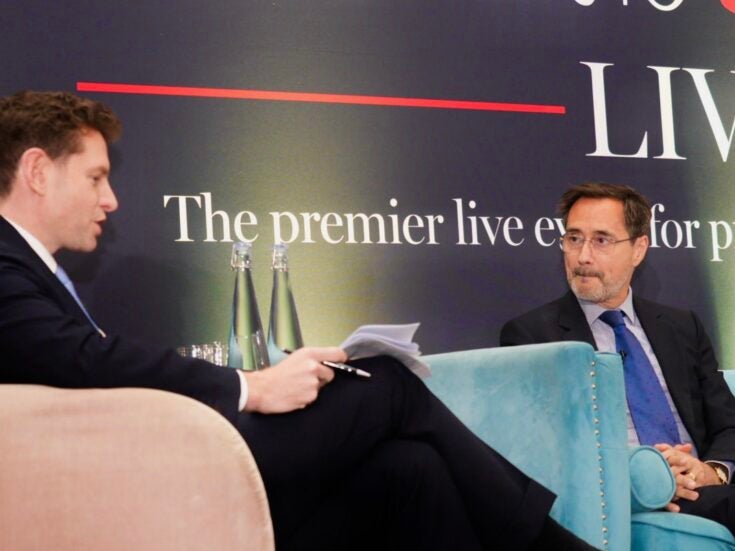
Made in Africa
Politically exposed persons are found in volatile global situations. Our new columnist, lawyer and activist Robert Amsterdam, reports on some of those frontlines, starting with China in Africa
THE EXPLOSIVE ECONOMIC growth of China over the past decade has transformed millions of lives, redefined investors’ portfolios and even shifted the global balance of power. The BRIC economies now represent 20 per cent of the global economy, four times ten years ago.
One of the most remarkable aspects of China’s economic transformation has been its growth in soft power, especially among many African nations where it has become the number one trading partner, allowing Chinese manufacturers access to critical raw materials at the most advantageous prices while also providing a market for manufactured exports.
But will this last forever? There are some cautionary signs which may signal a much more difficult future for China in Africa. The concerns that China may be wearing out its welcome came to a head in July when the president of South Africa, Jacob Zuma, visited premier Wen Jiabao in Beijing. Among all the backslapping and platitudes shared between the two leaders, President Zuma came to China with a bold message: Africa does not intend to become China’s resource colony.
‘Africa’s commitment to China’s development has been demonstrated by supply of raw materials, other products and technology transfer,’ President Zuma said. ‘This trade pattern is unsustainable in the long term. Africa’s past economic experience with Europe dictates a need to be cautious when entering into partnerships with other economies.’
Zuma’s comparison of China to the colonial European powers that ravaged the continent is illustrative of a new attitude prevailing in a number of African capitals I have visited in the past year. A growing sense of resentment over what are perceived to be unfair terms, an infamous tolerance of state corruption and alleged human-rights abuses of workers at state-owned mines has many African leaders, such as President Zuma, arguing a tougher line with Beijing.
But China’s problems in Africa go beyond politics. Beijing was successful for so many years in creating a massive footprint in Africa thanks to loans featuring no conditionality for democratic or economic reforms, to imported skilled labour to make every project deadline and to a glut of artificially cheap manufactured goods for Africa’s underserviced consumers.

DURING ONE OF my first visits to Lagos in the Seventies, the only Chinese imports were to be found among the egg rolls at a popular food stand. But when I visited earlier this year, the city’s ports swelled with stacks of containers packed with bargain-priced TVs, radios, electronics, clothing and assorted low-quality plastic wares.
According to the Financial Times, Chinese exports to Africa jumped by 22 per cent last year to hit $73 billion, which is double the GDP of Kenya, while the two-way volume of trade reached $166.3 billion. Meanwhile, the low prices have made it impossible for African industry to take off.
Another problem is that China’s largesse in Africa is often misdirected and does little to contribute to development. A $3.5 billion ‘ghost town’ was built on oil credit outside Luanda, Angola. The new headquarters of the African Union in Ethiopia were completed using Chinese labour, instead of training local workers. During my recent visit to Johannesburg, residents were furious over a new report showing that many anti-malarial drugs sent from China to Africa were counterfeit. Brand China is quickly gaining a poor reputation among many frustrated African consumers.
But the biggest challenge China is facing in Africa isn’t about politics or reputation, rather competition from other emerging markets. For the past two years, Africa’s exports to China as a percentage of total global trade have remained steady, revealing a new class of trade partners from Brazil to Turkey competing for access. India’s trade with Africa grew to $57 billion in 2011, while even South Korea is now at $22.2 billion.
These new competitors are combined with a new cold war as Washington seeks to block Chinese influence in Africa through questionable ‘anti-corruption campaigns’. In the next decade it will surely prove more difficult for Beijing to remain on top.
But that doesn’t mean that China is going to stop trying. Despite President Zuma’s bold diplomacy in July, the summit concluded with an agreement to extend $20 billion of loans to Africa, which is double those agreed three years ago. The staggering figure is China’s way of drawing a line in the sand: we’re in Africa, and we have no plans to leave.China is clearly betting on Africa as its number one strategic interest, the outcome of which is going to have ramifications far and wide across regional markets. We’ll see if the competitors among the other BRIC nations are up to the challenge.
Don’t miss out on the best of Spear’s articles – sign up to the Spear’s weekly newsletter
[related_companies]





